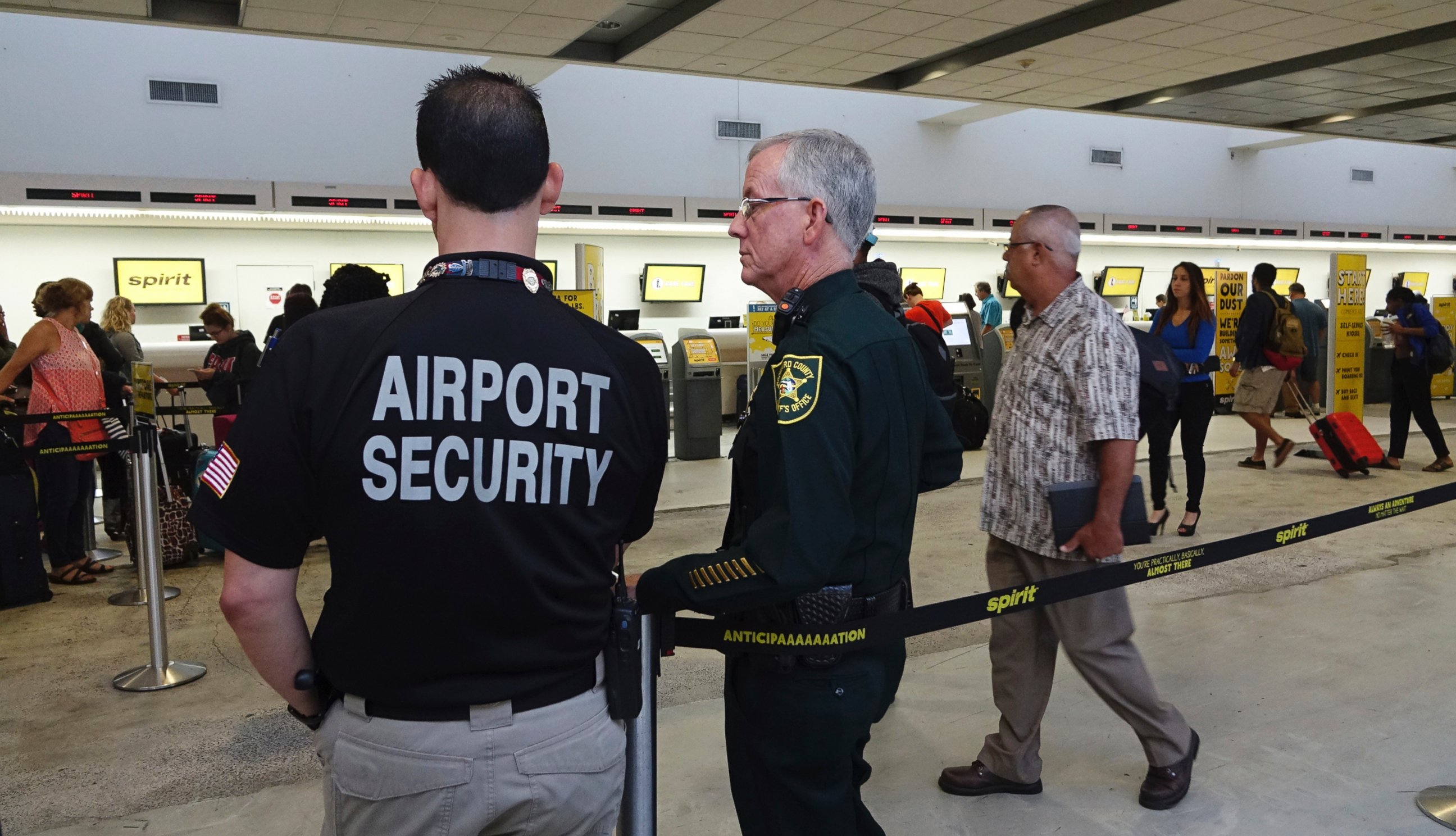Chicago Aviation Security Officers file class-action lawsuit after being striped of police status

CHICAGO IL April 13 2018 A class action lawsuit, on behalf of 292 aviation security officers, was filed today against the State of Illinois, City of Chicago, and Aviation Commissioner Ginger Evans regarding the changes made to the officers’ jobs in the ongoing fall-out from the incident involving United Airlines passenger David Dao last spring.
Previously, and going all the way back to 1993, the Chicago Aviation Police had been recognized, under Illinois law, as law enforcement officers. After the Dao incident, the officers were stripped of this status and their years of service were vacated, retroactively, from the records of the state Law Enforcement Training and Standards Board.
“Having had their work histories effectively erased, the officers are now working as security guards and cannot qualify to transfer laterally into other law enforcement jobs in other jurisdictions. Their career prospects and earning potential have been eviscerated and they’re suing to recover what they’ve lost,” says lawyer Robert D. Sweeney, who, with partner John J. Scharkey, is representing the officers.
The lawyers, partners at Sweeney & Scharkey LLC, who focus their work on complex trial matters, filed Aviation Security Officers vs. State of Illinois, et al. in U.S. District Court for the Northern District of Illinois this afternoon.
“The State and City have the right, legally, to grant or remove Law Enforcement Officer status,” explains Scharkey. “This case does not dispute that. The issue here is that, in retroactively removing their law enforcement work history, the City and State are taking away a professional credential that the airport police officers earned. The City and the State are trying to re-write history, erasing the officers from it.”
Since 1993, every aviation officer hired has been required to attend and graduate from the Chicago Police Academy or the Cook County Sheriffs Training Academy and to be sworn in as law enforcement officers by the Illinois Law Enforcement Training and Standards Board. As law enforcement officers, they have certificates and ID numbers reflecting this “LEO” status. And, as is true for anyone with this certification, they were required to re-certify and re-test with the Illinois Law Enforcement Training and Standards Board every year.
“I had been a security guard before, for CPS, and I know the difference between doing that one and doing this one,” says Officer Keia Yates, a plaintiff in the suit. “I took this job and went through all the training because it was a law enforcement job. If it wasn’t, I would have chosen to be someplace else for 17 years.”
Indeed, every sign and symbol associated with the officers said “police” – including their badges, ID cards, uniform patches, jackets, and the patrol cars they drove. And, while they did not carry guns while working – LEOs working in prisons or other environments where the regular presence of firearms is deemed to pose too great a risk are still LEOs – they did carry the specific kind of tactical batons that can only be carried by those with LEO status. They were also able to access state and federal databases to run instant background/warrant checks on private citizens as part of their duties.
LEO status is coveted and valuable as a professional credential. As LEOs, the aviation police officers could supplement their incomes, working part-time as police officers in other jurisdictions. They could also leverage their years of service to make lateral career moves into other police departments and law enforcement agencies without retraining or recertifying, receiving service credit so that their seniority reflected their time served. If they moved or applied for a new law enforcement job, they were typically not subject to age restrictions for new hires.
Before the Dao incident, there had never been any public dispute or question about their status as law enforcement officers. Indeed, since the terrorist attacks of Sept. 11, 2001, the City regularly touted the presence of these police officers at the airports as important to public safety. But, in the wake of the incident on United Airlines flight 3411, the city and state quickly decided to change their status.
Aviation Commissioner Ginger Evans, testifying before the US Senate about the Dao incident on May 2, 2017, said that the officers, seen on video wearing jackets marked “Police,” as they removed Dao from the plane, were not, in fact, police officers. Later that summer, she went further and declared, in an Orwellian twist, that they “are not, and have never been, police.”
On June 15, 2017, the Illinois Law Enforcement Training and Standards Board notified the City that it was deactivating the aviation department as a law enforcement agency and removing its officers from its registry of LEOs. This action retroactively stripped them of their time served as law enforcement officers, effectively erasing their work history, curtailing their job prospects and earning potential. For some, this meant nearly 30 years of work history had been vacated.
“This feels personal,” says Julio Dones, another member of the class. “It’s about identity. I gave years in service to the City and that’s being taken away from me and denied. I did everything that was asked and expected of me. But because of one incident that didn’t even involve me, 290 officers like me are losing the most valuable things we have: our reputations and experience.”
via Press Release


